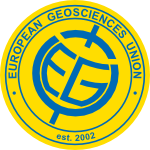Related Questions
- What do you think there is/are in the Mariana Trench?
- Oceans are very big and vast, can they really be threatened by human action?
- How do you measure the depth of an ocean ?
- How can we observe what the surface of the ocean floor looks like when it is so deep ?
- Hi. This might be a little silly, but since ninety-five per cent of the ocean is unexplored, what's your opinion of
- What do you think of today's everyday life of a teenager? Is it easier than it was for you?
- Do you think that in the future might make a tunnel for shuttles to build a ship with which we could make a trip to the
- How , after a collision with another planet , Terra left with a huge ocean and a mega- continent ? Why Terra wasn't a
- I'm sure you've heard of Jules Verne's "Journey to the center of the Earth". Have you read it and if yes, what did you
-
Recent Questions
- Hello. I wanted to ask…what does paleomagnetism particularly study? :)
- Do you expected to be one of the finalists?
- Why is water vapor only in the troposphere part?
- 1.How did Earth and other planets form?-su yaşin
- Do you think the accumulation of tension can be prevented in order to reduce the intesity of earthquake? (1 Comment)
Recent Comments
- Thanks from your winner - Andi! (2 comments)
- Do you think the accumulation of tension can be prevented in order to reduce the intesity of earthquake? (1 comments)
- If there is an earthquake on Jupiter, Mars, Venus etc. will it still be called EARTHquake ? (1 comments)
- How do you measure the depth of an ocean ? (2 comments)
- What do you think of music like Ed Sheeran's songs? (1 comments)



Hi!
That’s a very good question. I actually had to think about it for quite a bit before making up my mind! 🙂
So I think we probably know more about the surface of planets relatively close to us like the Moon, Mars and some other planets in the Solar System compared to what we know about the ocean as a whole, especially if we think about the largely unexplored deep ocean.
However, if we think about the entire “space” as in universe, potentially other universes, etc…then I think the answer is no.
The problem about exploring the ocean is that it’s really expensive to do this with ships and even when we do, normally we can’t take measurements in every season (because of bad weather, costs, not enough time available) and the ocean can change very rapidly and seasonally, so we often only know one part of the story. And the ocean is too big for scientists to go and make measurements everywhere.
For the deep ocean or some remote areas, there are also other problems related to technology and sometimes we just can’t reach them, just because our tools are not good enough yet.
So what can we do about it?
The good news is that now there are new ways that scientists are using to study the ocean and don’t require ships. For example, Argo floats are autonomous machines that we send out to measure the global ocean. There are 3846 floats out on a mission as of today (you can check that out on the Argo website http://www.argo.ucsd.edu/ where the number is updated everyday), measuring salinity and temperature of sea water as we speak! They can reach a lot of places and provide very useful data (sent through satellites). The limitation is that they can only go as deep as 2000 meters.
Gliders are also similar instruments. They also float around but the main difference from the Argo floats is that scientists can interactively decide where they want them to go all the time, the Argo floats instead float around following the ocean currents. Gliders can also have more sensors installed and measure other properties together with temperature and salinity.
These instruments are also expensive, but they can reach a lot of places and they don’t require the use of ships and can be operated remotely by scientists. These are already providing a lot of useful information!
For the deep ocean, one example are big machines called ROV (remotely operated vehicle), which are a bit like big robots (they have mechanical arms and can take samples from the ocean floor which can then be analysed in the lab) that scientists send down to the very deepest ocean and take video images. Thanks to these images scientists have explored a lot of areas that we couldn’t humanly reach and studied life down there. For example, this provided a lot of information about hydrothermal vents or deep sea ecosystems.
Unfortunately these instruments have to be lowered from a ship, so so far we have only explored some areas of the deep sea and there is still so much to see out there.
Again, all these ocean observations are very expensive to make. But I think that space exploration is definitely even more expensive.
So in the end I hope that we can continue exploring both “worlds” and that we don’t have to make a choice. New technologies are being developed in both fields, maybe we just hear more about the space on tv and in the news in general because the topic sounds more interesting for the big public and every new little discovery in space gets a lot more attention than those made in the ocean.
What do you think? Do you feel that we know more about the space than the ocean?
0